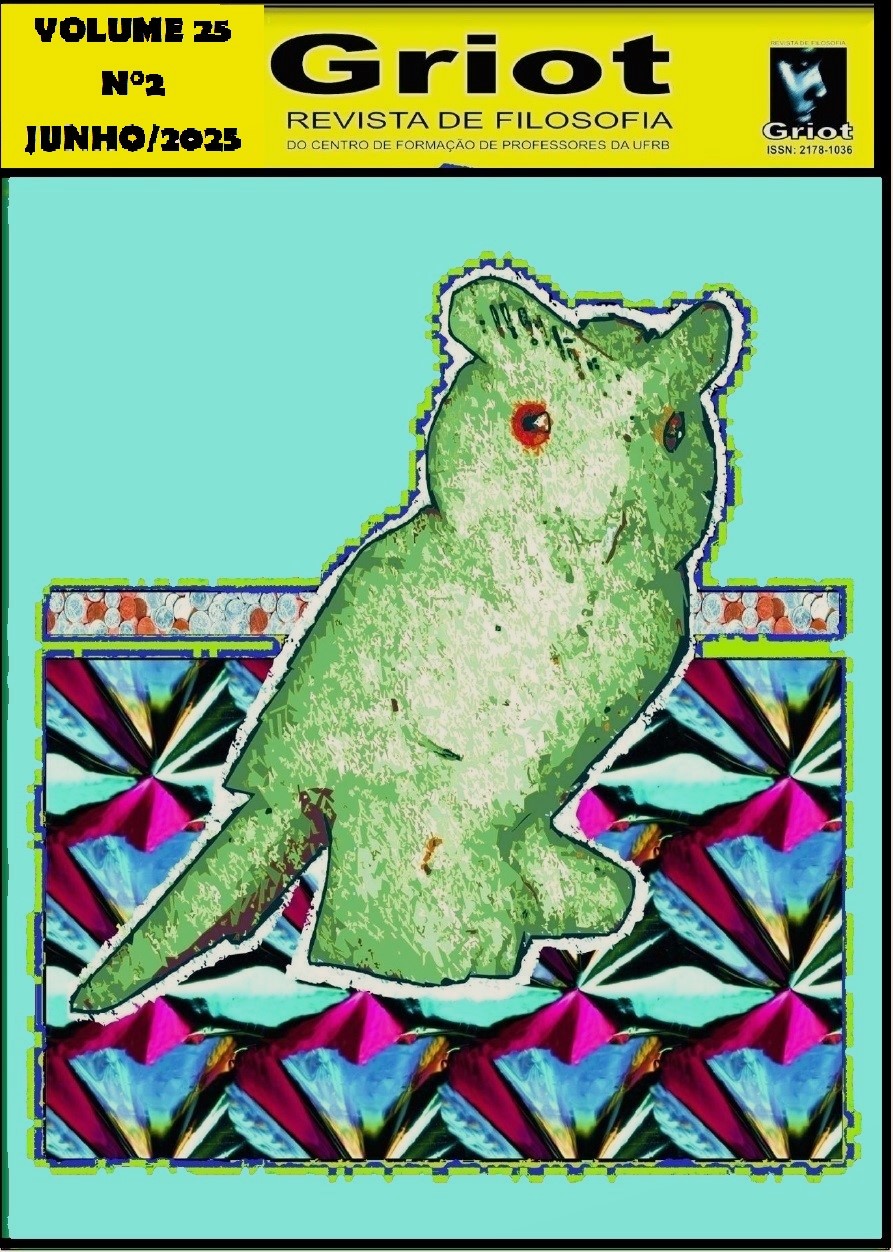African animism as a strategy of decolonial resistance in the novel a Louca de Serrano, by Dina Salústio
DOI:
https://doi.org/10.31977/grirfi.v25i2.5325Keywords:
Literature; Resistance; African Animism; Environmental ethics.Abstract
In the subchapter entitled “Narrative and Resistance”, from his work Literature and Resistance, Alfredo Bosi (2002) clarifies that “resistance”, being an ethical concept, should not, a priori, be related to aesthetics, as this originates from effects of knowledge, which would be: intuition, imagination, perception and memory. However, the author explains, contrary to popular belief, resistance and aesthetics interact in literary productions in a consistent and recurring way. Resistance to certain institutionalized values combines with narrative in two ways: as a theme and as an inherent form of writing. In this sense, we propose to analyze the way in which African animism manifests itself in the novel A Louca de Serrano, by Cape Verdean writer Dina Salústio. Our interest is to highlight the differences between the animistic perspective and the Cartesian discourse, with regard to proposals for interaction between human beings and the environment. According to the animist view, dichotomous/exclusive positions must be rejected and replaced by more harmonious and aggregating positions. In this way, it is possible to infer that the founding ideas of the animist unconscious, related to the sharing of vital force by all beings, human and non-human, point to the urgent need to rethink the ways in which we relate to nature; and also the importance of considering the proposal of “living in relationship” as a valid option for accessing relevant knowledge for training in environmental ethics. The work selected for analysis falls within the line of African Animist Realism, therefore, to provide a sufficient and appropriate approach to the topic, we chose, as main sources of consultation, the following texts: Literature and Resistance, by Alfredo Bosi (2002); “Decolonial metamorphoses: the animist unconscious and transmutations as a worldview in African literature”, by Silvio Ruiz Paradiso (2024); and “Provisional reflections on animism, modernism/colonialism and the African order of knowledge”, by Harry Garuba (2018).
Downloads
References
ALVES, Roberta Maria Ferreira. A Literatura de Cabo Verde. Literafro - O portal da literatura Afro-Brasileira. Belo Horizonte, s/d. http://www.letras.ufmg.br/literafro/literafricas/literatura-cabo-verdiana/1558-a-literatura-de-cabo-verde-roberta-maria-ferreira-alves. Acesso em 01.11.2024
BOSI, Alfredo. Literatura e Resistência. São Paulo: Companhia das Letras, 2002.
CHEVALIER, Jean; Gueerbrant, Alain. Dicionário de símbolos: mitos, sonhos, costumes, gestos, formas, figuras, cores, números. Trad. Vera da Costa e Silva...[et al]. 38ª ed. Rio de Janeiro: José Olympio, 2023.
GARUBA, Harry. Reflexões provisórias sobre animismo, modernismo/colonialismo e a ordem africana do conhecimento. Cadernos Cespuc, número 32, 2018.
LOPES, Nei; Simas, Luiz Antonio. Filosofias Africanas. 5ª ed. Rio de Janeiro: Civilização Brasileira, 2021.
MBEMBE, Achille. A comunidade terrestre. Trad. José Mário Silva. Lisboa: Antígona Editores, 2024.
MBURU, Elizabeth. Hermenêutica Africana: contribuições da riqueza intelectual e cultural da África para o entendimento da fé cristã. Trad. Antônio Oliveira Dju. São Paulo: Hagnos; Quitanda, 2023.
PARADISO, Silvio Ruiz. O realismo animista e as literaturas africanas: gênese e percursos. Revista Interfaces. Vol. 11, número 2, 2020.
PARADISO, Silvio Ruiz. Metamorfoses decoloniais: o inconsciente animista e transmutações como cosmovisão nas literaturas africanas. Bakhtiniana, São Paulo, v. 19, n. 1, p. 1-27, jan./mar, 2024.
RODRIGUES, Eni Alves. Considerações sobre o realismo animista a partir da leitura do conto ‘A morte do velho Kipacaça’, de Boaventura Cardoso. Cadernos Cespuc. Número 32, 2018. Disponível em: file:///C:/Users/User/Downloads/17047- Texto%20do%20artigo-61861-1-10-20180412.pdf
SALÚSTIO, Dina. A Louca de Serrano. São Vicente: Spleen Edições, 1998.
Downloads
Published
How to Cite
Issue
Section
License
Copyright (c) 2025 Francisca Patrícia Pompeu Brasil

This work is licensed under a Creative Commons Attribution 4.0 International License.
The authors who publish in Griot: Revista de Filosofia maintain the copyright and grant the magazine the right of first publication, with the work simultaneously licensed under the Creative Commons Attribution 4.0 International License, allowing sharing and adaptation, even for commercial purposes, with due recognition of authorship and initial publication in this journal. Read more...









































































